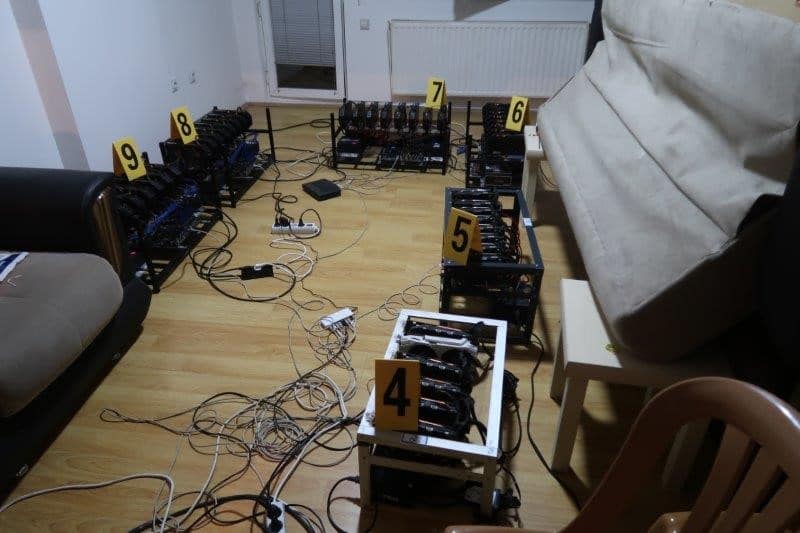Left-wing opposition party SYRIZA alleged on Tuesday that the Greek National Intelligence Service collaborated in the use of the illegal spyware software Predator to monitor Artemis Seaford, a Greek-American woman who worked for social media company Meta, as well as other targets.
The New York Times on Monday confirmed a previous report by Greek media outlet Documento that the illegal spyware software Predator monitored Seaford at the same time as the intelligence service was spying on her. It was the latest in a series of spyware revelations in Greece.
“The New York Times’ revealing report on the Artemis Seaford surveillance underscores what everyone knows, but the Mitsotakis administration continues to deny. The National Intelligence Service and Predator are the same single eavesdropping centre,” SYRIZA said in a press release.
Seaford lived in Greece for part of the time from 2020 to the end of 2022. During that time, she worked as a trust and safety manager at Meta, Facebook’s parent company, where she maintained working relations with Greek and other European officials, according to the New York Times.
Seaford’s mobile phone was infected with the spyware when she clicked on a message she received which contained a contaminated link for her vaccination against COVID-19.
“Anyone, anywhere can fall prey to spyware hacking. I should know – I was a Predator target,” Seaford wrote on Twitter on Monday.
“This does not make it normal. We need our governments and international bodies to protect us,” she said.
The Greek media outlet Documento first revealed in November 2022 that she had been monitored.
Kostas Vaxevanis, journalist and publisher of Documento, published lists of politicians, ministers, businesspeople, journalists and others who had been put under surveillance; among these names was Seaford. Documento’s report said the reason why she was being monitored was unclear.
Seaford expressed bemusement in an article she wrote for Greek media outlet Kathimerini later in November.
“I am not an official of any party, a member of the press, or a business owner with close government connections,” she said.
According to the New York Times, Seaford’s monitoring by the intelligence services started in August 2021, the month before the Predator infection, and for several months into 2022.
The newspaper suggested that the simultaneous tapping of Seaford’s phone by the intelligence services and the Pegasus infection “indicate that the spy service and whoever implanted the spyware, were working hand in hand”.
Mitsotakis’ conservative government has denied any responsibility for the spyware scandal.
“The Greek authorities and security services have at no time acquired or used the Predator surveillance software. To suggest otherwise is wrong,” government spokesperson Giannis Oikonomou told the New York Times.
“The alleged use of this software by nongovernmental parties is under ongoing judicial investigation,” Oikonomou added.
In November 2021, the newspaper EFSYN reported that journalists and lawyers dealing with refugee cases, civil servants and anti-vaxxers had all been the targets of surveillance by the National Intelligence Service, including BIRN contributor Stavros Malihoudis.
In April 2022, Greek media outlet Inside Story disclosed that Predator was used to spy on journalist Thanasis Koukakis.
In July 2022, it was also revealed that Nikos Androulakis, head of PASOK-KINAL, the third-largest party in the Greek parliament, almost fell victim to the Predator surveillance software.
In the meantime, the Greek judiciary has been investigating the use of Pegasus and other surveillance spyware and the European Parliament’s PEGA Committee has launched its own investigations.






 Illustration: BIRN/Igor Vujcic
Illustration: BIRN/Igor Vujcic Huawei (Nicosia)-the building in which Huawei’s main Cyprus offices reside. Photo: BIRN
Huawei (Nicosia)-the building in which Huawei’s main Cyprus offices reside. Photo: BIRN
 Mediterranean Hospital of Cyprus (Limassol),one of two Cypriot hospitals to partner with VeChain store vaccination records on the VeChainThor blockchain. Photo: BIRN
Mediterranean Hospital of Cyprus (Limassol),one of two Cypriot hospitals to partner with VeChain store vaccination records on the VeChainThor blockchain. Photo: BIRN Passport control at the derelict former Nicosia International Airport in Nicosia, Cyprus. Photo: EPA/JAN RAKOCZY
Passport control at the derelict former Nicosia International Airport in Nicosia, Cyprus. Photo: EPA/JAN RAKOCZY


 Stefan Angelovski. Photo: BIRN
Stefan Angelovski. Photo: BIRN Illustration: Pixabay
Illustration: Pixabay



